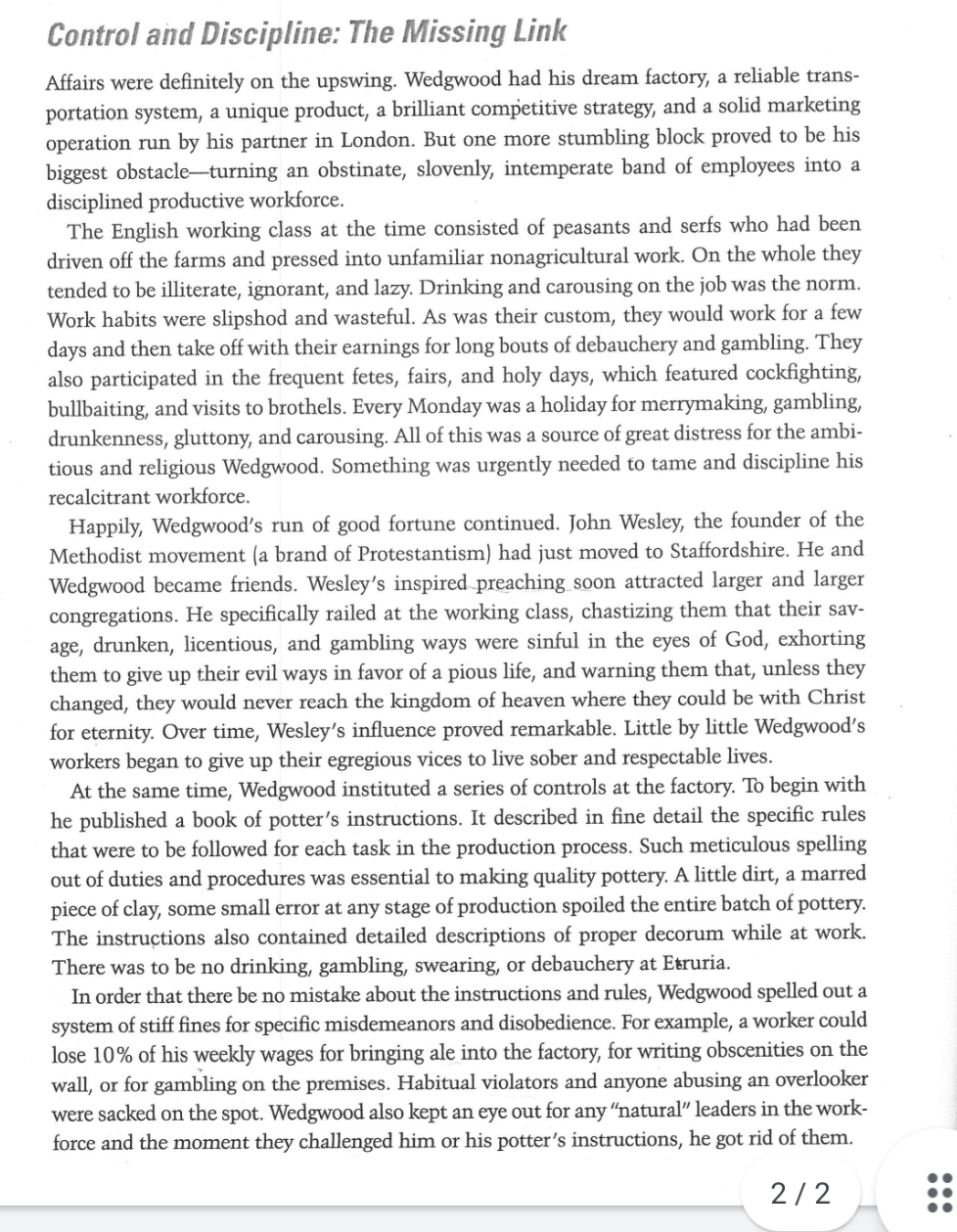what are the management controls systems in this Wedgwood potteries case
Control and Discipline: The Missing Link Affairs were definitely on the upswing. Wedgwood had his dream factory, a reliable trans- portation system, a unique product, a brilliant competitive strategy, and a solid marketing operation run by his partner in London. But one more stumbling block proved to be his biggest obstacle-turning an obstinate, slovenly, intemperate band of employees into a disciplined productive workforce. The English working class at the time consisted of peasants and serfs who had been driven off the farms and pressed into unfamiliar nonagricultural work. On the whole they tended to be illiterate, ignorant, and lazy. Drinking and carousing on the job was the norm. Work habits were slipshod and wasteful. As was their custom, they would work for a few days and then take off with their earnings for long bouts of debauchery and gambling. They also participated in the frequent fetes, fairs, and holy days, which featured cockfighting, bullbaiting, and visits to brothels. Every Monday was a holiday for merrymaking, gambling, drunkenness, gluttony, and carousing. All of this was a source of great distress for the ambi- tious and religious Wedgwood. Something was urgently needed to tame and discipline his recalcitrant workforce. Happily, Wedgwood's run of good fortune continued. John Wesley, the founder of the Methodist movement (a brand of Protestantism) had just moved to Staffordshire. He and Wedgwood became friends. Wesley's inspired preaching soon attracted larger and larger congregations. He specifically railed at the working class, chastizing them that their sav- age, drunken, licentious, and gambling ways were sinful in the eyes of God, exhorting them to give up their evil ways in favor of a pious life, and warning them that, unless they changed, they would never reach the kingdom of heaven where they could be with Christ for eternity. Over time, Wesley's influence proved remarkable. Little by little Wedgwood's workers began to give up their egregious vices to live sober and respectable lives. At the same time, Wedgwood instituted a series of controls at the factory. To begin with he published a book of potter's instructions. It described in fine detail the specific rules that were to be followed for each task in the production process. Such meticulous spelling out of duties and procedures was essential to making quality pottery. A little dirt, a marred piece of clay, some small error at any stage of production spoiled the entire batch of pottery. The instructions also contained detailed descriptions of proper decorum while at work. There was to be no drinking, gambling, swearing, or debauchery at Etruria. In order that there be no mistake about the instructions and rules, Wedgwood spelled out a system of stiff fines for specific misdemeanors and disobedience. For example, a worker could lose 10% of his weekly wages for bringing ale into the factory, for writing obscenities on the wall, or for gambling on the premises. Habitual violators and anyone abusing an overlooker were sacked on the spot. Wedgwood also kept an eye out for any "natural" leaders in the work- force and the moment they challenged him or his potter's instructions, he got rid of them. 2/2







